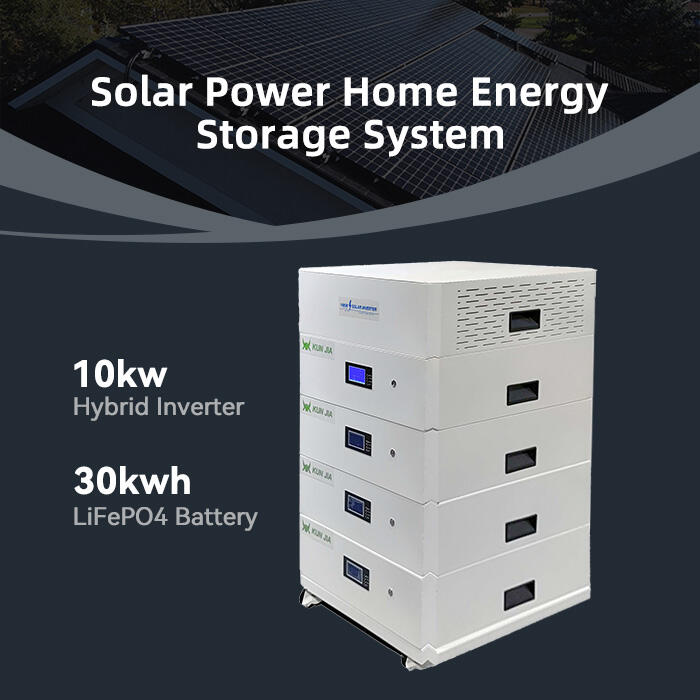For business in various industries, the primary focus is on containing operational expenses. One of the strategies that has been getting more focus is the use of industrial energy storage. This technology goes beyond the simple concept of storing energy. When it comes to industrial energy storage, it helps to remove unnecessary operational costs, streamline the balance between energy supply and demand and avoid the costs associated with energy supply during peak hours. This technology enables the storing of energy during off peak hours or when there is an oversupply of energy and discharges the stored energy during periods of high demand or high prices like during peak production hours. This efficient energy management strategy helps businesses avoid energy supply costs and optimizes the value of every unit of energy.

The impact on operational cost through peak shaving is one of the greatest benefits industrial energy storage has to offer. Most energy providers impose a higher cost during peak demand periods. This is when larger volumes of energy is consumed at the same time. Without energy storage, companies have to buy all their energy from the grid, which during peak hours means higher costs. This is where industrial energy storage changes the game. The system stores energy when costs are low, which is during off-peak periods at night and on weekends. Then, during peak demand periods, instead of purchasing expensive grid energy, the business is able to utilize stored energy. This substantially reduces the high-cost energy that a business has to buy. Consider a manufacturing plant that operates heavy machinery. They can use stored energy to power some of their operations which helps reduce reliance on the grid during peak expensive periods. This makes the energy bill much cheaper which is a direct improvement on operational cost.
Every industrial business needs to keep running smoothly, especially when unexpected power outages are very costly. Backup generators are one solution but they can be quite expensive too. Outdated generators require regular maintenance and operational inspections, not to mention the expensive costs of running generators on diesel or gasoline. Industrial energy storage systems are much cheaper and are positive to the environment. There are no emissions, the energy storage systems are silent, and businesses no longer have to run the outdated oil-powered generators thinking about environmental costs and compliance. Overall, energy storage systems help businesses save when power outages occur and during regular day operations.
Every industrial business needs to keep running smoothly, especially when unexpected power outages are very costly. Backup generators are one solution but they can be quite expensive. Outdated generators require regular maintenance and operational inspections, not to mention the expensive costs of running generators on diesel or gasoline. Industrial energy storage systems are much cheaper and are positive to the environment. There are no emissions, the energy storage systems are silent, and businesses no longer have to run the outdated oil-powered generators thinking about environmental costs and compliance. Overall, energy storage systems help businesses save when power outages occur and during regular day operations.
Energy storage in the industrial sector is not only about the timing of storing and using energy; it is also about optimizing energy use and reducing energy waste. Throughout the day, many industrial facilities have variable and fluctuating energy needs. Sometimes, they have more available energy than they need (for example, if they have on-site solar panels). Capture and store that surplus energy in industrial energy storage instead of letting it go unused. During peak loads, that stored energy is available. This stored energy will substitute for purchased grid energy, thus saving money and improving energy efficiency. Eliminating energy waste translates to reducing carbon emissions. This also brings other advantages, such as improved brand image and access to carbon offset funding. Lower operational costs will also justify industrial energy storage investments, making it more cost-effective.
When businesses buy equipment, they want it to last and be flexible to their changing needs—and that's the case with industrial energy storage. Most industrial energy storage systems particularly those incorporating advanced batteries, have long useful lives with thousands of charge-discharge cycles. This limits the frequency of costly system replacements, thus minimizing long-term capital costs. Furthermore, these systems have the ability to grow. If a business expands and its energy needs grow, it can easily add more storage capacity, rather than replacing the entire system. This eliminates the need for large, one-off investments in energy infrastructure. For instance, a growing warehouse can add extra battery packs to its energy storage system to meet the higher energy demand. Eventually, the long useful life of the system and its ability to grow will be the source of savings. This explains why a growing number of industrial businesses are adopting energy storage solutions.